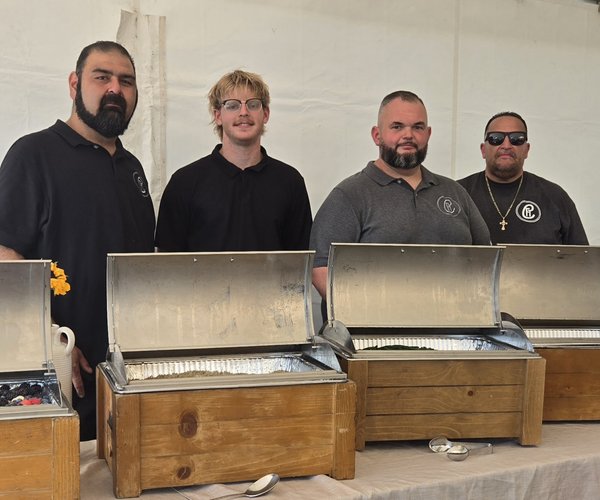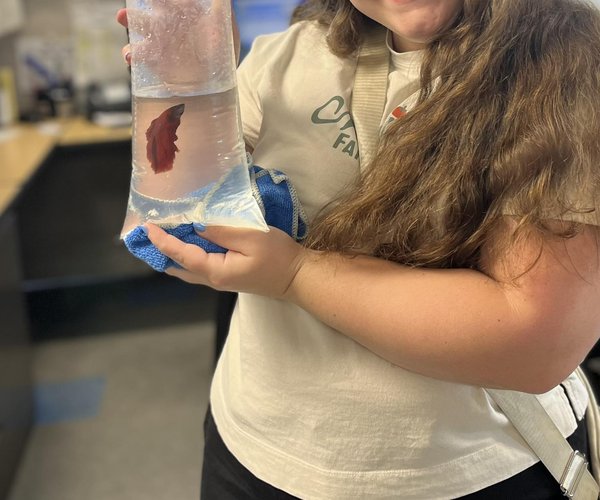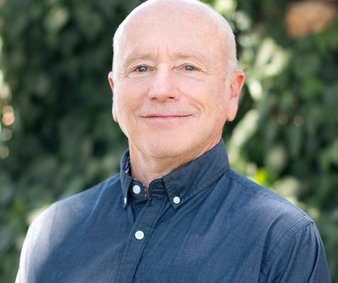Car Show for Cash
The Connecting Point Church of the Nazarene has designated the Goeppert family as the beneficiaries of its annual Cruzin’ Benefit Car Show on Saturday. The proceeds will help the family pay for home and vehicle modifications needed for Cash.
The car show will be from 8 a.m. to 2 p.m. Vendor spots are available for $25 and vehicles and motorcycles can register for $25 or $30 the day of the event. Admission is free, though donations will be accepted. The car show will be at 3200 E. Monte Vista Avenue in Denair.
For more information call 668-4080 or visit www.cpncarshow.com.
The monster in 3-year-old Charleston “Cash” Goeppert’s life doesn’t live under his bed, lurk in his closet, or come out when the lights go off. His monster comes in the form of a gene mutation that makes the simplest of functions, like breathing and swallowing, a moment to moment struggle.
This monster may threaten Cash’s life, but his parents are determined it won’t dominate it.
“If we look at it negatively, then he will too,” said Cash’s father Cameron Goeppert. “We don’t let the disease define him.”
Cash has spinal muscular atrophy, which is a neuromuscular disease that causes muscle atrophy and weakness. It’s caused by a defect in the Survival Motor Neuron 1 gene.
Pulling out some of Cash’s Hot Wheel cars and remote control trucks to use as a demonstration, Cameron explains that the proteins in his son’s body are not long enough to deliver the message to his muscles.
“They just don’t connect,” Cameron explains as one toy car falls short of reaching another.
As a result of SMA, muscle movements are drastically limited. SMA has two types and in Cash’s case of Type 1, tasks such as swallowing, breathing, and holding his head up are met with extreme difficulty.
“It’s hard to imagine everything our muscles do,” said Cash’s mother Ashley Goeppert. “It affects so many functions we just take for granted.”
The SMA Foundation estimates that 1 in 50 Americans are a carrier of the mutation that causes SMA, but that the gene is recessive and doesn’t show any symptoms. Both parents have to be carriers for the disease to be passed on to a child. One in every 6,000 to 10,000 children born in the United States have SMA.
The more severe form of Type 1 usually appears before the age of 6 months. In Cash’s case the first sign that something might be wrong appeared when he was about 1 month old.
“He appeared normal and healthy at birth and nursed just fine,” Ashley said. “At 1 month a baby should be able to lay on his tummy and push himself up a little bit. But Cash couldn’t do it. He would just get frustrated and cry. At 2 months his head would just fall back. They started looking at neurological causes and at 3 and half months we got the official diagnosis of SMA.”
The diagnosis was a particularly hard blow for the Goepperts to take because both are professionals in the medical field — Ashley as an ICU Pediatric nurse and Cameron as a paramedic for American Medical Response. During her pregnancy, Ashley underwent a litany of tests prior to the birth of their first child, but SMA is not routinely tested for and as Ashley explains, was never on the couple’s radar.
With the diagnosis came the grim news that the odds were that their son would likely die before his second birthday.
“They basically told us to take him home and make him comfortable for whatever time he might have,” Cameron said.
“For the first few months we couldn’t believe what they were telling us — you don’t want to believe it,” Ashley said. “Then we started doing research and found the SMA community online and some adults living with Type 1. That gave us hope.
“We still live with that fear every day, but it has opened our eyes to the blessings we have and appreciate the time with him more,” Ashley said.
Life with SMA has become part of the regular routine in the Goeppert household. Cash uses a ventilator and receives breathing treatments on a routine basis. He relies on a feeding tube to deliver his nourishment and each day brings an assortment of physical therapy activities to keep his muscles functioning. But in between that he is as normal a 3-year-old as the circumstances allow.
“He’s really into swimming and remote control cars right now,” Ashley said. “He also likes arts and crafts, painting and Legos.”
“He’s into anything that has a process that he can see from one step to the next, “Cameron said. “His cognition is not affected by SMA. He’s very bright. He can’t explore his environment in one way, so he does it in other ways.”
Challenges, like helping Cash explore his world in his own way, don’t deter the Goeppert family, nor will anything SMA brings their way.
“We research, we fight it, we cry and we love,” Ashley said. “We’ve learned to manage.”









